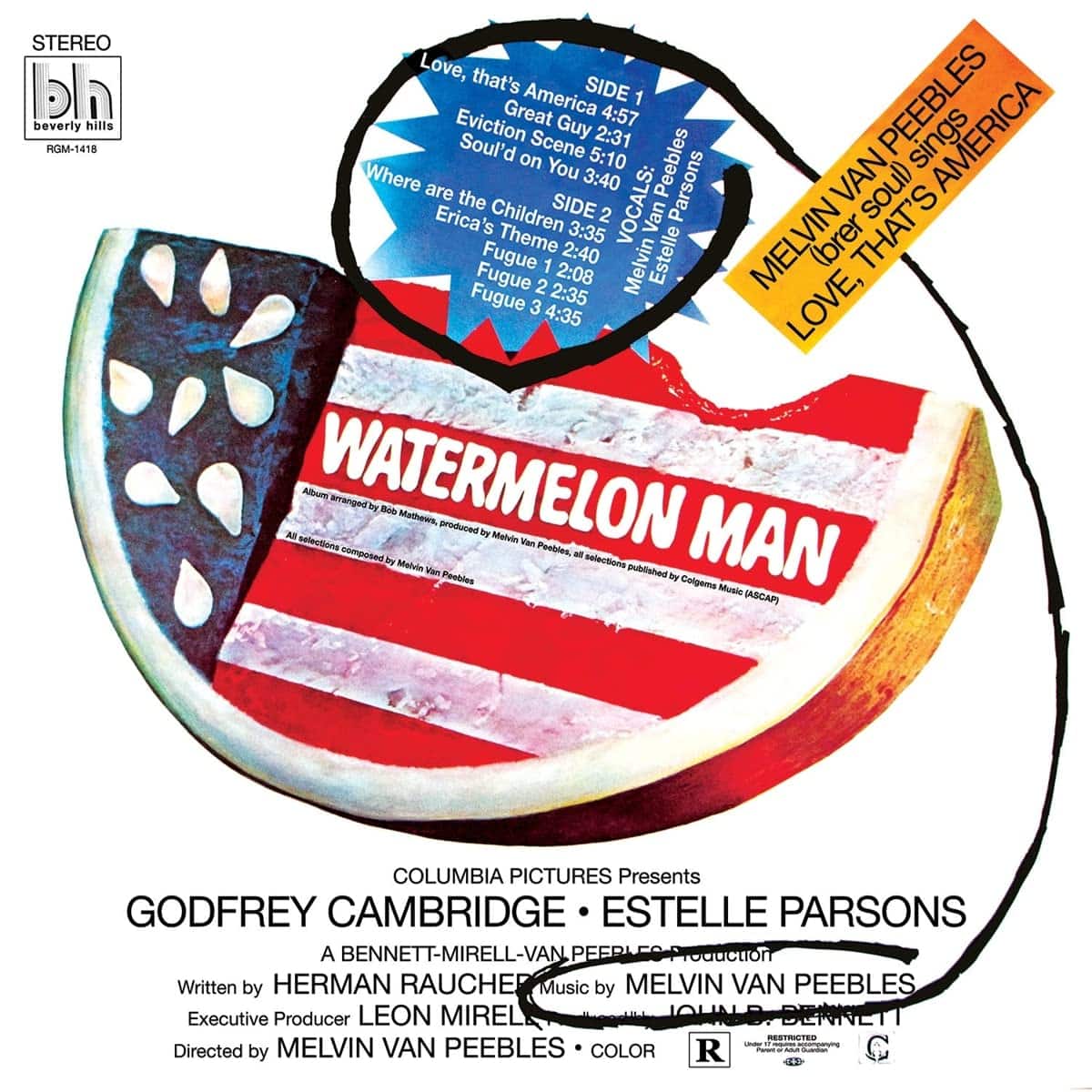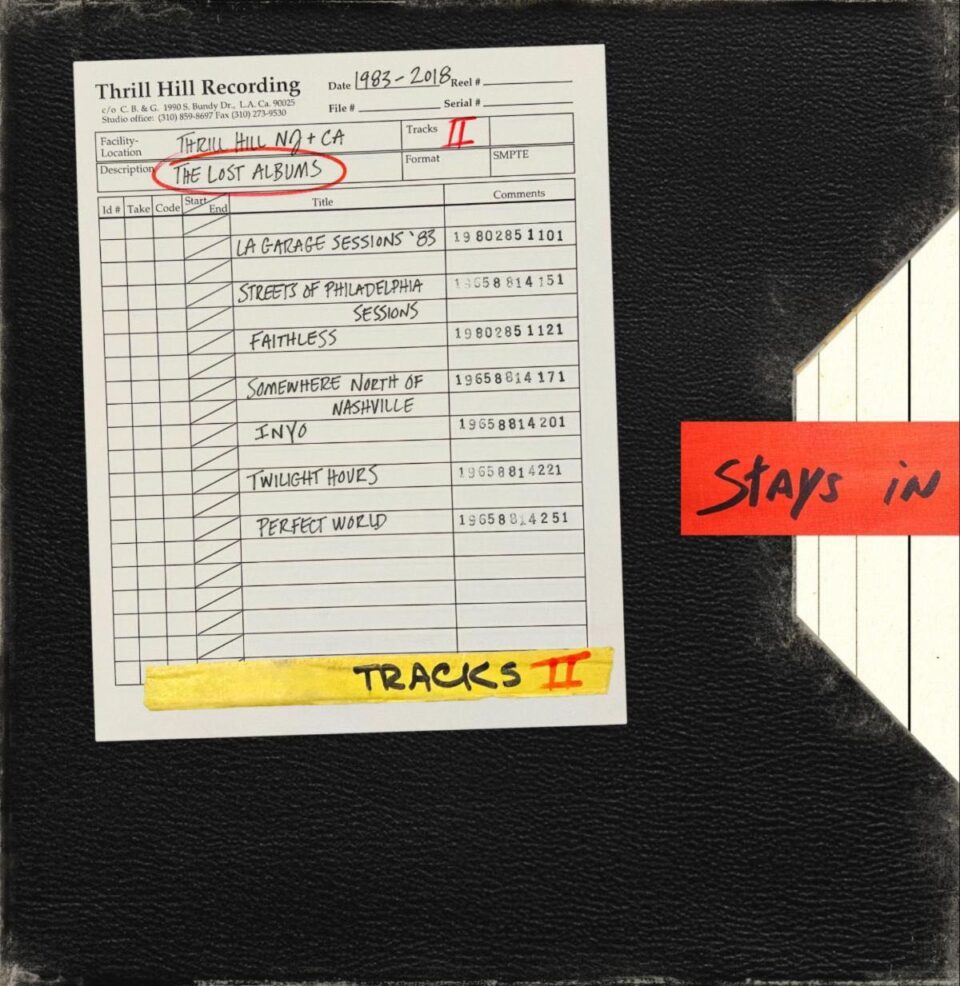Melvin Van Peebles
Watermelon Man
REAL GONE MUSIC
Before cinematic auteur and indie maverick Melvin Van Peebles made his self-financed 1971 cult hit Sweet Sweetback’s Baadasssss Song—the movie and its bold soundtrack—the author, actor, and Sprechgesang avatar made one prior studio film with 1970’s Watermelon Man. Starring the ice-dry Black comedian Godfrey Cambridge as an opinionated, bigoted white insurance salesman who suddenly turns Black, Watermelon Man is controversial before its first frame unspools. That Cambridge’s formerly white character spends the film portraying how Black men in America lived at the time (and live now, proving Van Peebles’ prescience once again) is what makes Watermelon Man potent and uncompromising.
The same thing is true of the film’s soundtrack, even more so. Composed by Van Peebles and sung-spoken in his growly, pointed, pre-pre-form of rap, the OST is one long hyperactive, molten, funky collage moving hurriedly and jarringly from blues, jazz, honky-tonk, ragtime, rock, country, and R&B without distinction between the lines. When rolling behind the flat-color film’s surface, the cacophonous noise levels behind Van Peebles’ dialogue is often a cluttered mess—his intention, for sure. Life is messy. Race is messy. Music, when done right and raw, is messy. On a goofy, soul-strewn track such as “Great Guy,” Van Peebles is playing to the sadly racist screeds still wrongly permissible at the beginning of the 1970s.
Along with that talky, strident, rhythmic flow of Van Peebles that zig-zagingly punctuates much of the Watermelon Man score like a punch, then a tickle, his vocals are no less rousing. As he did on his 1969 debut album Brer Soul, Van Peebles sounds as if he’s instantaneously writing and singing the songs to Watermelon Man, even working a wonky croon on the humorous and highly politicized “Love, That’s America,” as well as appearing with co-star Estelle Parsons on “Where Are the Children.” Add to all of his undulating funk the nasal, whining slide guitar played by an uncredited Ry Cooder, and much of Van Peebles’ wild, noisy score comes across like that of Performance, Nicolas Roeg’s 1970 film about identity with Mick Jagger.
In addition to buying this reissue of Watermelon Man (on green vinyl, no less), do yourself a favor and track down the movie. At times dated, it’s no less riveting or uncomfortably humorous now as it was in 1970.









